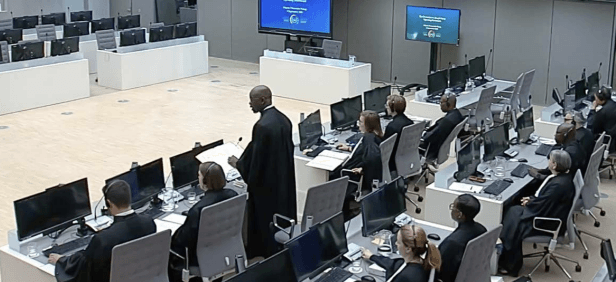The Ethics and Anti-Corruption Commission has opposed amendments to the Corruption and Economic Crimes Bill, 2023 saying it will erode public confidence and respect for the law and betray the Constitution.
The Bill by Homa Bay Town MP Peter Kaluma seeks to amend Section 64 of the Anti-Corruption and Economic Crimes Act, 2003 by deleting the provision for the disqualification of persons convicted of corruption or economic crimes from being elected as public officers for ten years after conviction.
"A person who is convicted of corruption or economic crime shall be disqualified from being elected or appointed as a public officer for ten years after the conviction," Section 64 (1) of the ACECA Act says.
In a memorandum to the Departmental Committee on Justice and Legal Affairs signed by deputy CEO Abdi Mohamud, EACC cited seven reasons behind its objection to the amendment of the piece of law.
In its preamble, the commission said ineligibility to hold public office on account of conviction for serious offences like economic crimes and graft is common practice in other countries such as Uganda, the UK, Canada, Zambia, Brazil and Australia.
The commission said corruption or economic crimes negatively impact society leading to poor service provision, loss of public funds and compromises national security.
"The nature of corruption and economic crime offences hurt the public interest and thus the punishment must be proportionate to the damage occasioned to society," EACC said.
The commission said persons convicted of corruption or economic crimes should be subjected to disqualification from office for the period stated since they are likely to further those acts once in office.
EACC further argued that the period of disqualification is not permanent as the convicts would still be eligible for elective or appointive posts upon the lapse of the ten-year ban.
"The Prescribed period is meant for reflection and reform."
The commission further told the George Murugara-led committee that amending Section 64 of the ACECA Act would be a drawback to the fight against corruption as it would render Chapter 6 of the Constitution on the Leadership and Integrity Act useless.
Deleting Section 64 of ACECA would further weaken the framework for implementing Chapter Six of the Constitution, it said.
"Section 64 of the ACECA is a deterrent measure, which denies the convicted person opportunity to engage in acts of corruption and economic crimes. Deterrence is a key tool in aiding the war against corruption," EACC said.
The commission dismissed Kaluma's argument that disqualifying an already convicted person from holding public office would amount to double punishment as they would have already served the stipulated time in jail or paid the resultant fine.
EACC said the amendment would have adverse effects on Kenyans considering the attendant loss of public funds occasioned by acts of corruption.
"The proposed amendment is therefore regressive, it is against public interest and will serve to negate national values and principles of governance."
Further, EACC held that by Kenya being a signatory of the United Nations Convention Against Corruption (UNCAC) it's bound by the provisions of Article 30 (7) of the UNCAC.
The law states that where warranted by the gravity of the offence, each state party shall consider establishing procedures for disqualification, by the court or any other appropriate means, for a period of time determined by its law, of convicted persons from holding public office.

















